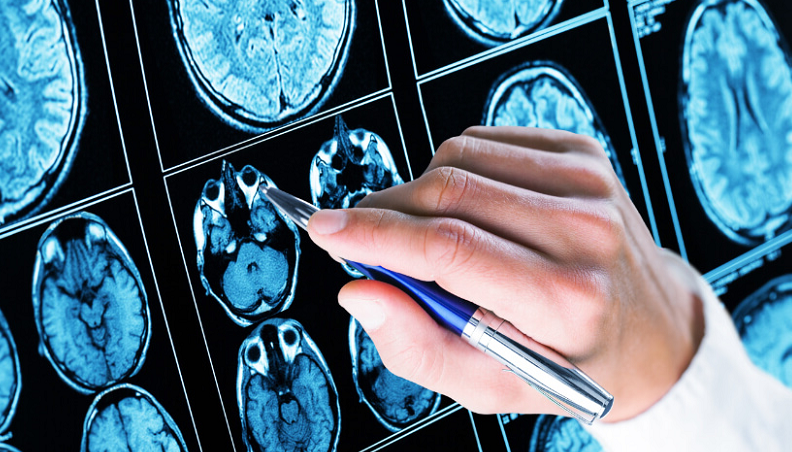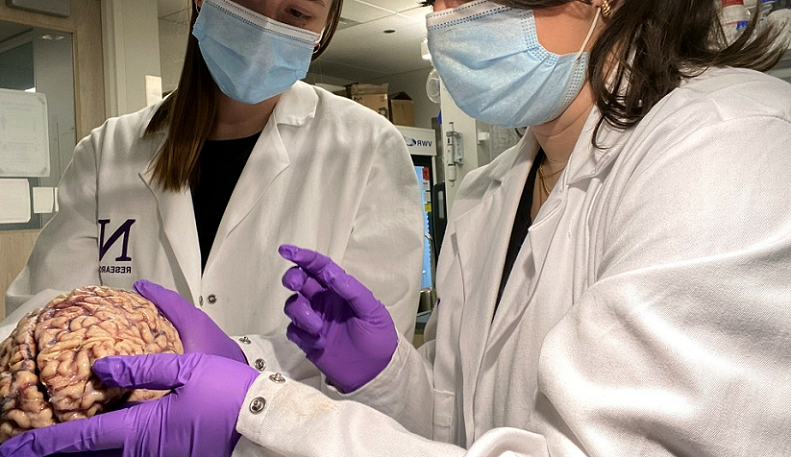
As the clock of life ticks, one of the most treasured aspects of our existence, the mind, begins to show signs of wear. Cognitive decline, while often perceived as an inevitable consequence of aging, is becoming a focal point of scientific research and innovation. With an increasing global population living well into their twilight years, the quest for cognitive longevity has never been more pertinent. In the dynamic landscape of neuroscience, there are glimmers of hope and pioneering advancements that suggest we might not be mere passive observers to the march of time.
Contents
Introduction to Cognitive Decline and Regenerative Medicine
Our brain, the epicenter of thought, emotion, and identity, is remarkably intricate. As we journey through life, its vast networks of neurons enable us to create memories, build skills, and shape our very perceptions. However, like all aspects of our physical being, the brain is susceptible to the passage of time and the challenges it brings. This introduction will offer a glimpse into the phenomenon of cognitive decline, its significance in the modern age, and the revolutionary promise of regenerative medicine and techniques in combating it.
Cognitive decline refers to the gradual decrease in brain functionality over time. It can manifest as memory loss, reduced attention span, diminished problem-solving capabilities, or a combination of these and other symptoms. While certain degrees of cognitive change are a natural aspect of aging, severe or rapid decline can be indicative of more pressing neurodegenerative conditions.
Cognitive health is paramount not just to individual well-being, but to societal productivity and harmony as well. As our global population ages, with a growing number of individuals living into their 80s and beyond, understanding and addressing cognitive decline becomes a central health concern. Ensuring the cognitive vitality of this aging population is crucial not only to reduce healthcare burdens but also to maintain the wealth of knowledge, experience, and wisdom that older generations offer.
Understanding Cognitive Decline
Cognitive decline isn’t just about forgetting where we placed our keys or the name of a distant acquaintance. It encompasses a broader spectrum of challenges that can affect our day-to-day lives, interpersonal relationships, and overall quality of life. To appreciate the efforts being made in regenerative therapies, it’s crucial first to understand the very nature of cognitive decline, its origins, and its various manifestations.
The Aging Brain
Natural Changes and Impacts on Function
The brain, like any organ, undergoes changes as we age. The volume of the brain tends to decrease, especially in areas like the hippocampus, which is vital for memory formation. Additionally, the flow of blood can reduce, and there might be a decrease in the rate at which new neurons or connections form. These natural changes can result in slower cognitive processing, difficulty multitasking, or minor memory lapses. However, these shifts are generally subtle and don’t severely impede daily functioning.
Difference Between Age-Related Changes and Disease
While everyone experiences some cognitive changes as they age, it’s vital to differentiate between these expected alterations and the symptoms of more severe neurodegenerative diseases. For instance, occasional forgetfulness or temporary difficulty in finding words can be a part of normal aging. In contrast, getting lost in familiar places, forgetting the names of close family members, or significant mood and personality shifts might indicate conditions like Alzheimer’s disease or other dementias [1].
Common Diseases and Conditions
A deeper exploration into cognitive decline requires an understanding of the diseases and conditions that can accelerate or intensify it. The complexities of the brain mean that there are various ways in which its function can be compromised.
Alzheimer’s Disease
Perhaps the most well-known of the neurodegenerative conditions, Alzheimer’s disease is characterized by a progressive loss of memory and cognitive functions. It’s believed to be caused by abnormal protein deposits in the brain, leading to nerve cell death. Symptoms can start with mild forgetfulness but can escalate to significant memory loss, confusion, and an inability to perform daily tasks.
Parkinson’s Disease
While Parkinson’s is often recognized by its characteristic motor symptoms like tremors or stiffness, it also has cognitive implications. As the disease progresses, many patients experience difficulties with memory, attention, and other cognitive functions.
Vascular Dementia
Resulting from reduced blood flow to the brain, vascular dementia is the second most common cause of dementia after Alzheimer’s. It can manifest after a stroke or as a result of smaller, unnoticed blockages in the brain’s blood vessels. Symptoms can vary widely but might include confusion, disorientation, and difficulty concentrating [2].
Other Cognitive Impairments
There are myriad other conditions, both neurodegenerative and otherwise, that can impact cognitive function. These include conditions like Lewy body dementia, frontotemporal dementia, and even chronic traumatic encephalopathy, often seen in individuals with a history of repeated head injuries.

The Science Behind Brain Regeneration
The intricate tapestry of the human brain, with its billions of neurons and trillions of connections, is a marvel of nature. However, the once-prevailing belief that the brain was a static organ, incapable of significant self-renewal after early development, has been radically transformed. Emerging studies and discoveries have painted a picture of a brain that’s adaptable, resilient, and, under certain conditions, capable of regeneration.
Neuroplasticity
The concept of neuroplasticity is foundational to our understanding of the brain’s regenerative capabilities. It describes the brain’s inherent ability to reorganize itself, form new connections, and adapt throughout an individual’s life.
The Brain’s Ability to Adapt and Change
Neuroplasticity isn’t just about the brain’s ability to heal after injury; it’s also about its capacity for adaptation in the face of new experiences, learning, and environments. This adaptability means that if one part of the brain becomes damaged, another part might take over the functions previously managed by the injured area. Such plasticity underlies the brain’s resilience and is the reason why individuals can often recover cognitive functions even after traumatic events.
The Role of Synaptic Plasticity
At the heart of neuroplasticity is synaptic plasticity, the ability of synapses (connections between neurons) to strengthen or weaken over time in response to changes in their activity. This dynamic adaptability of synapses is essential for learning and memory. When we learn something new or reinforce existing knowledge, certain synapses in our brain become stronger. Conversely, unused or less-used connections might weaken or fade, adhering to the “use it or lose it” principle [3].
Neurogenesis
Beyond the adaptability of existing neurons, the brain has an even more astonishing capability: the birth of new neurons, a process termed neurogenesis.
Creation of New Neurons
For a long time, it was believed that humans were born with a fixed number of neurons and that no new ones could be produced after childhood. However, groundbreaking research has shown that certain areas of the brain, particularly the hippocampus (a region vital for memory and learning), can generate new neurons throughout life. While the rate of neurogenesis might decline with age, the process remains a potential avenue for cognitive rejuvenation and recovery.
Factors Affecting Neuronal Growth
Various factors can influence neurogenesis. Positive influencers include physical exercise, cognitive stimulation, a balanced diet, and certain medications. Conversely, chronic stress, lack of sleep, and certain medical conditions can hinder the birth of new neurons. Understanding these factors is pivotal in leveraging neurogenesis for cognitive longevity.

Promising Therapeutic Approaches for Cognitive Longevity
In an era where science and technology advance at lightning speed, the quest for cognitive longevity has witnessed groundbreaking therapeutic innovations. While lifestyle modifications like diet, exercise, and cognitive training are invaluable, they form just one facet of the comprehensive approach towards brain health.
Stem Cell Therapies
Stem cells, with their unique ability to transform into a plethora of cell types, have long been eyed as a potential powerhouse in regenerative medicine.
Current Applications and Results
Research in stem cell therapy for cognitive decline, especially conditions like Alzheimer’s, has gained momentum in recent years. Scientists have been exploring the potential of stem cells to replace damaged neurons, promote the growth of new blood vessels, or even support the environment in which neurons function. Preliminary trials, particularly with mesenchymal stem cells, have shown encouraging results in improving cognitive functions and reducing symptoms of neurodegenerative diseases [4].
Potential Benefits and Risks
The potential of stem cell therapies is vast: from slowing the progression of neurodegenerative diseases to enhancing recovery from brain injuries. However, like any medical intervention, it comes with its set of challenges. Potential risks include immune rejection, the formation of tumors, or unintended effects on neighboring tissues. As with all burgeoning fields, further rigorous research is essential to ascertain the safety and efficacy of these treatments.
Brain-Computer Interfaces (BCIs)
Futuristic as it sounds, the fusion of biology with technology through BCIs is no longer the stuff of science fiction.
Augmenting Brain Function
BCIs connect the brain with external devices, allowing for direct communication between the two. This can have multiple applications for cognitive health. For instance, BCIs can potentially help restore lost sensory information, augment memory, or even facilitate communication for individuals who have lost the ability to speak due to conditions like advanced ALS.
Therapeutic Implications for Cognitive Impairments
Beyond augmentation, BCIs hold therapeutic promise. They can be used to retrain brain circuits, deliver targeted neurofeedback, or even stimulate specific brain regions to enhance plasticity and repair. While still in its early stages, the fusion of the biological brain with technology might revolutionize the way we approach cognitive impairments.
Nutritional and Herbal Interventions
While advanced treatments catch the spotlight, the power of nature in supporting brain health cannot be understated.
The Role of Diet in Brain Health
Numerous studies have underscored the profound impact of diet on cognitive function. Diets rich in antioxidants, omega-3 fatty acids, and other neuroprotective compounds, such as the Mediterranean diet, have been linked to reduced risks of cognitive decline and dementia. These dietary components can reduce inflammation, combat oxidative stress, and promote vascular health—all crucial for a thriving brain.
Potentially Beneficial Supplements and Herbs
Several herbs and supplements have garnered attention for their potential neuroprotective properties. Ginkgo biloba, curcumin, and lion’s mane mushroom are just a few examples that have been studied for their potential benefits in enhancing memory, promoting neurogenesis, and protecting against age-related cognitive decline. It’s vital, however, to approach these supplements with a discerning eye and consult healthcare professionals, as individual responses can vary.

Lifestyle and its Role in Cognitive Longevity
While innovative therapies and scientific breakthroughs command attention, the cornerstone of cognitive longevity remains rooted in our day-to-day habits and lifestyles. The choices we make daily, from what we eat to how we manage stress, play a pivotal role in shaping our cognitive trajectories.
Physical Activity and Exercise
The relationship between a healthy body and a healthy mind is deeply intertwined. Regular physical activity holds profound benefits for the brain, beyond just enhancing cardiovascular health.
Benefits of Regular Exercise
Engaging in regular exercise, be it aerobic activities like jogging, strength training, or even flexibility exercises like yoga, offers manifold benefits to the brain. It promotes the release of growth factors, chemicals that aid in the health and growth of neurons. Furthermore, exercise facilitates better blood flow to the brain and can even enhance neurogenesis, especially in the hippocampus [5].
Recommendations for Optimal Brain Health
While any movement is better than none, experts recommend a mix of cardiovascular exercises, strength training, balance exercises, and flexibility routines for optimal brain health. Ideally, adults should aim for about 150 minutes of moderate-intensity aerobic exercise each week, complemented by muscle-strengthening activities on two or more days a week.
Diet and Nutrition
Our brains, though a small fraction of our body weight, consume a significant portion of our daily energy. What we feed our bodies directly impacts the health and function of our brain.
Brain-Boosting Foods
Certain foods have been recognized as particularly beneficial for brain health. These include fatty fish rich in omega-3s, blueberries loaded with antioxidants, turmeric with its active compound curcumin, nuts, seeds, and dark leafy greens. Consuming a diet rich in these foods can protect against oxidative stress, reduce inflammation, and promote neuron health.
The Detrimental Effects of Poor Diet Choices
On the flip side, diets high in refined sugars, excessive unhealthy fats, and processed foods can be detrimental to brain health. These dietary patterns can promote inflammation, reduce the flexibility of synapses, and even impair learning and memory. Moderation is key, and making conscious dietary choices can have long-lasting positive effects on cognition.
Stress Management and Mental Well-being
Our brains, while resilient, are not impervious to the pressures and stresses of modern life. Managing stress and nurturing mental well-being is paramount for cognitive longevity.
Effects of Chronic Stress on the Brain
Prolonged stress can have deleterious effects on the brain. Chronic stress leads to the sustained release of cortisol, which, in elevated levels, can impair synaptic plasticity, hinder neurogenesis, and even shrink parts of the brain crucial for memory and learning.
Strategies for Effective Stress Management
Effective stress management involves a combination of proactive and reactive strategies. This could include mindfulness practices like meditation, deep-breathing exercises, regular physical activity, maintaining social connections, and seeking professional help when needed. Ensuring adequate sleep, often termed as the brain’s “clean-up time,” is also vital in countering the effects of stress.
References
[1] Ageing, neurodegeneration and brain rejuvenation
[2] Blood-to-brain communication in aging and rejuvenation
[3] 3 Reasons Why Brain Aging Might Soon Be Reversible
[4] Hacking the Brain: Dimensions of Cognitive Enhancement
[5] Beyond “Use It or Lose It”: The Impact of Engagement on Cognitive Aging

